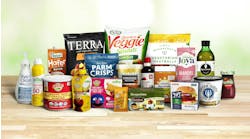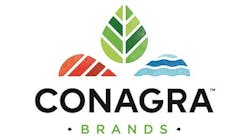Just eight days before Vermont's GMO labeling law goes into effect, foes on the U.S. Senate's Agriculture Committee unveiled a compromise plan that would provide for mandatory national labeling of GMOs – some printed on labels, some electronic – plus USDA oversight of the program and, perhaps most importantly, a pre-emption of state labeling laws.
Under the legislation introduced today (June 23), USDA would have two years to construct the labeling regulation program. Previous efforts focused on giving this program to the FDA.
The bipartisan legislation followed weeks of negotiation between Sen. Pat Roberts (R-Kan.), chairman of the agriculture committee and advocate for a weaker labeling law; and Debbie Stabenow (D-Mich.), the ranking Democrat on the committee, who fought for a stronger rule. Each called it a win for consumers, both for providing the additional information and for keeping down the cost of food products. They also noted it covers "tens of thousands of food products exempt from Vermont’s law."
If the legislation becomes law – and that's not a certainty – food & beverage companies could select from among three options: add "contains genetically modified organisms" to the label, use a GMO label to be created by USDA or use the previously debated QR code, which the food industry's lobbying arm has dubbed SmartLabel.
Using the SmartLabel would require consumers to scan a label with a QR code reader on a smartphone or to look up the item on a computer. But this electronic option would require a quick and prominent link disclosing the presence of GMOs, not burying it behind marketing and other product information.
USDA would have one year from when the law is passed to determine if there are any technological challenges preventing consumers from accessing GMO information using electronic media.
Meat or eggs produced from livestock given GMO feed would not have to be labeled. For foods that contain both meat and GMOs, a label would be required if meat is not the primary ingredient. That's even more aggressive than the Vermont law, which says a GMO label is not necessary if a product has any amount of meat – such as a pepperoni pizza.
While Vermont’s law, which was passed in May 2014, will take effect July 1, food companies actually have until Jan. 1, 2017, to fully comply. As the Vermont deadline approached, several food companies announced GMO labels, including Campbell Soup, Mars, General Mills, Kellogg and ConAgra.
Gary Hirshberg, chairman Stonyfield Farm and also chairman of pro-labeling organization Just Label It, said the bill "falls short of what consumers rightly expect — a simple at-a-glance disclosure on the package.
"While we are pleased this proposal will finally create a national, mandatory GMO disclosure system, protects organic labels and will cover more food than Vermont’s groundbreaking GMO labeling law, we are disappointed that the proposal will require many consumers to rely on smartphones to learn basic information about their food," Hirshberg said on behalf of Just Label It.
The bill will have to be approved by the full Senate then reconciled with a year-old House bill.

